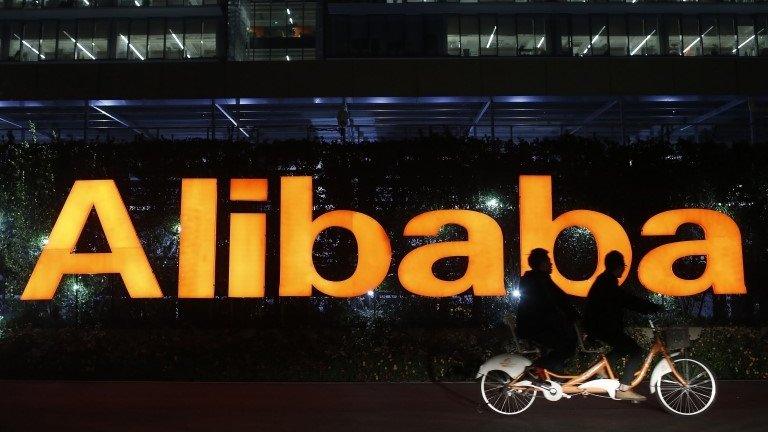What is China's Singles' Day?
- Published
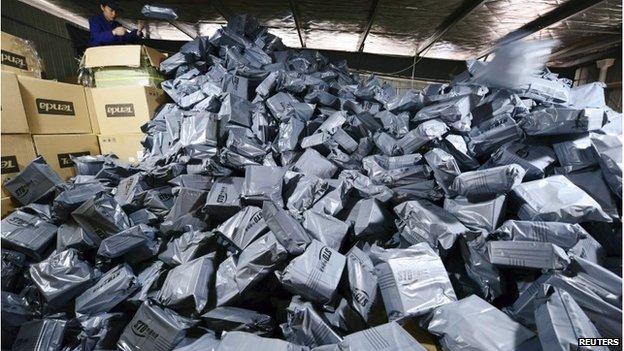
Online shopping sales are expected to reach record levels as Chinese consumers flock to "Singles' Day" discounts. How did a marketing ploy by China's Alibaba become the world's biggest online retail event?
As the name suggests, Singles' Day began as a day for single people - apparently a chance to celebrate for the singletons, or "bare sticks", symbolised by the four number ones in the date of 11 November - 11/11.
But in 2009 the online retail firm Alibaba adopted the day to promote a massive online shopping sale. It said the date was easy to remember, and conveniently placed in a consumer spending lull between National Day and Chinese New Year holiday.
Singles' Day rapidly became a hit. Other online retailers began cashing in, and Alibaba copyrighted the term "Double 11".
By 2013, sales easily outstripped those for the nearest equivalents in the US, the post-Thanksgiving shopping splurges on Cyber Monday and Black Friday.
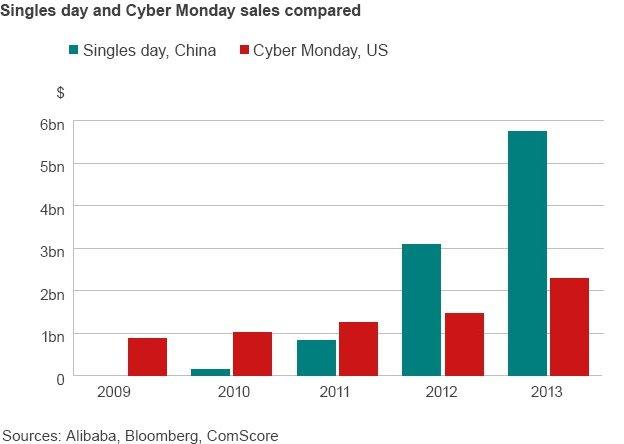
This year China's state postal service reportedly expected some 500 million packages to be shipped as a result of Singles' Day orders, up 50% from last year. With several hours to go, Alibaba said sales had reached 51.9 billion yuan ($8.5bn; £5.3bn).
Some sellers were listing Singles' Day prices as early as mid-October, though deposits are only taken and goods shipped on the day itself.
Alibaba alone was expecting almost 27,000 merchants and more than 42,000 brands to take part in sales hosted on the company's various shopping sites. It says that since 2009, year-on-year sales growth has averaged 640%.
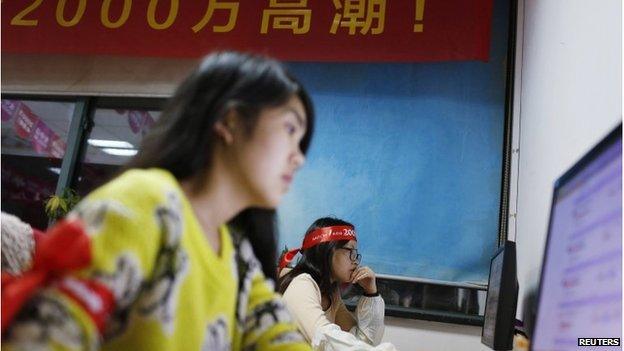
Employees of the Alibaba site Tmall serving Singles' Day customers online
As consumers raced to secure discounted products, Alibaba provided live updates, external of "transaction milestones", and a live sales figure on a giant screen at its premises in Hangzhou.
How has Alibaba, which links buyers and sellers, pulled it off? Crucially, it has been able to tap into China's changing demographics, marketing to its emerging middle class and its increasingly affluent young population.
This has allowed the company to go from humble start-up to retail giant in the space of 15 years. Its platforms now carry some 80% of Chinese online commerce. Forbes has named Jack Ma, its charismatic founder, as the richest person in China, with an estimated fortune of $19.5bn.
Alibaba's charismatic founder Jack Ma is one of China's richest men
China now has more than 600 million internet users, leaving the US (277 million) and Europe (546 million) in its wake.
And with a total population of 1.3 billion people, there's still plenty of room for growth.
But Alibaba also has global aspirations. It says more than 200 overseas merchants from more than 20 countries had confirmed participation in its Singles' Day sales this year, with multinational brands taking part in the "11.11 shopping festival" for the first time.
Even in China, however, Singles' Day has begun to draw some criticism.
Retailers can suffer, external, not only from sharp discounts a drop in sales in the wait ahead of Singles' Day, but also by paying for advertising, commissions to Alibaba, and the extra logistical support needed to deal with payment and delivery bottlenecks.
Some on the Chinese social media platform Weibo worried that prices were so low they were being tempted to spend money they didn't have.
Another user complained: "I don't know why people are so excited about the 'Double 11'. It's meaningless as they all hike prices before offering a discount."
- Published11 November 2014

- Published11 November 2014
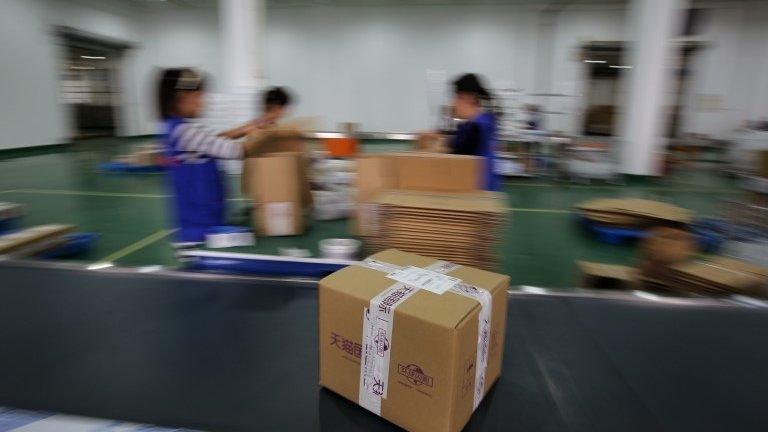
- Published11 November 2014
